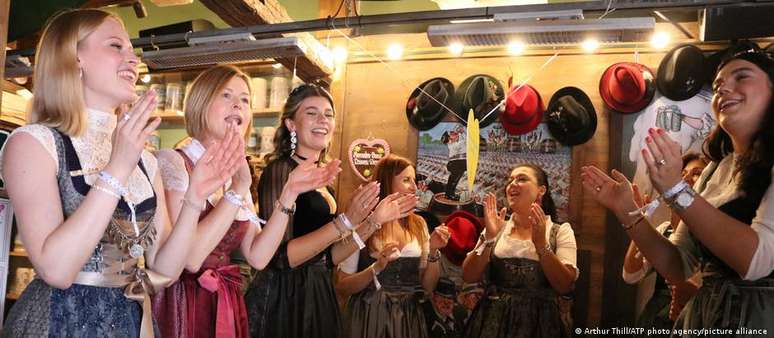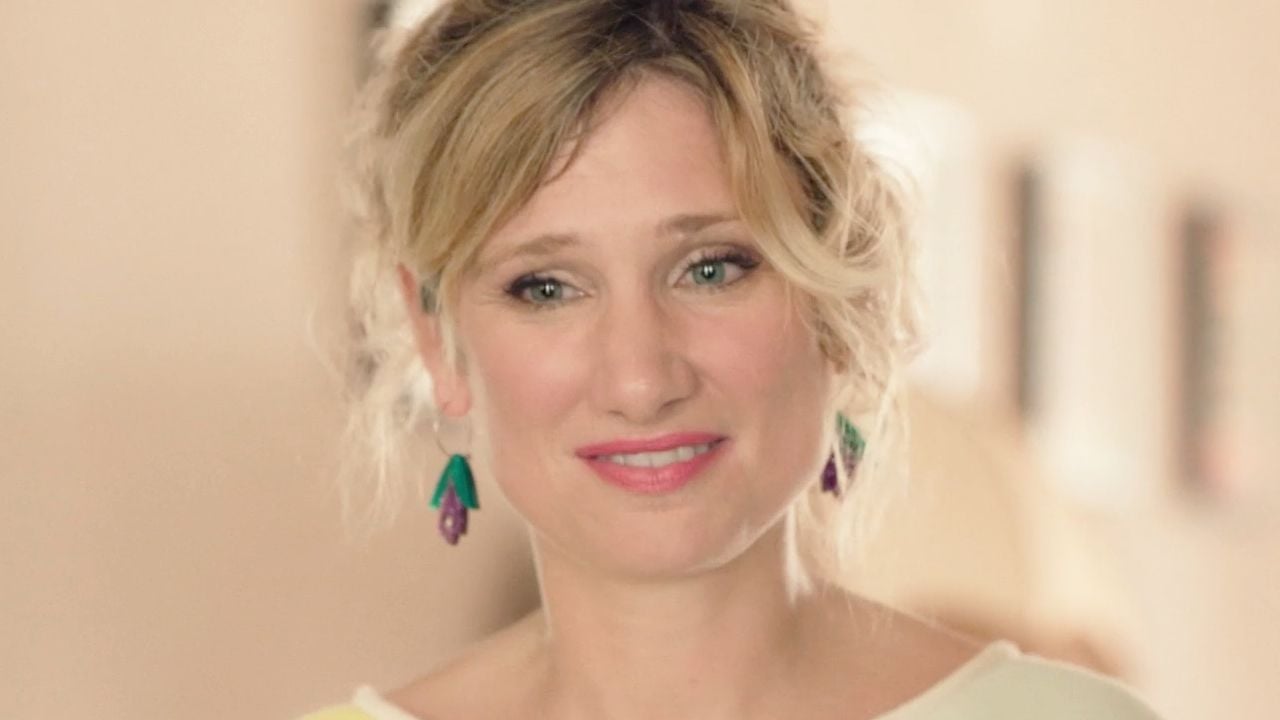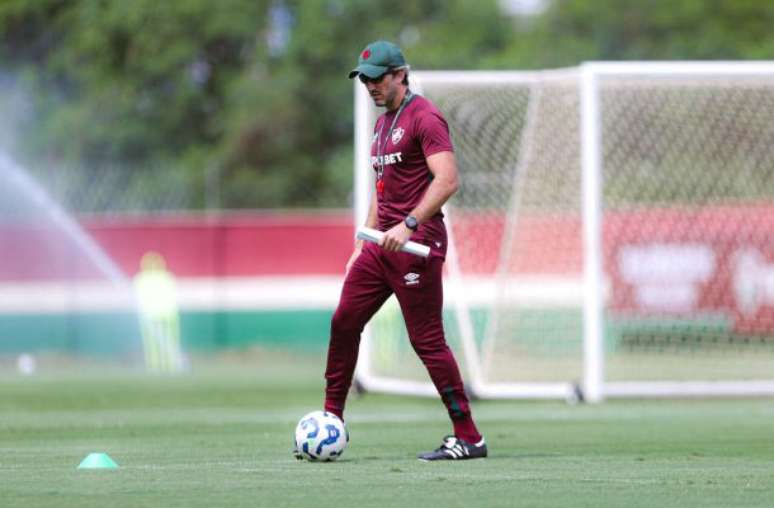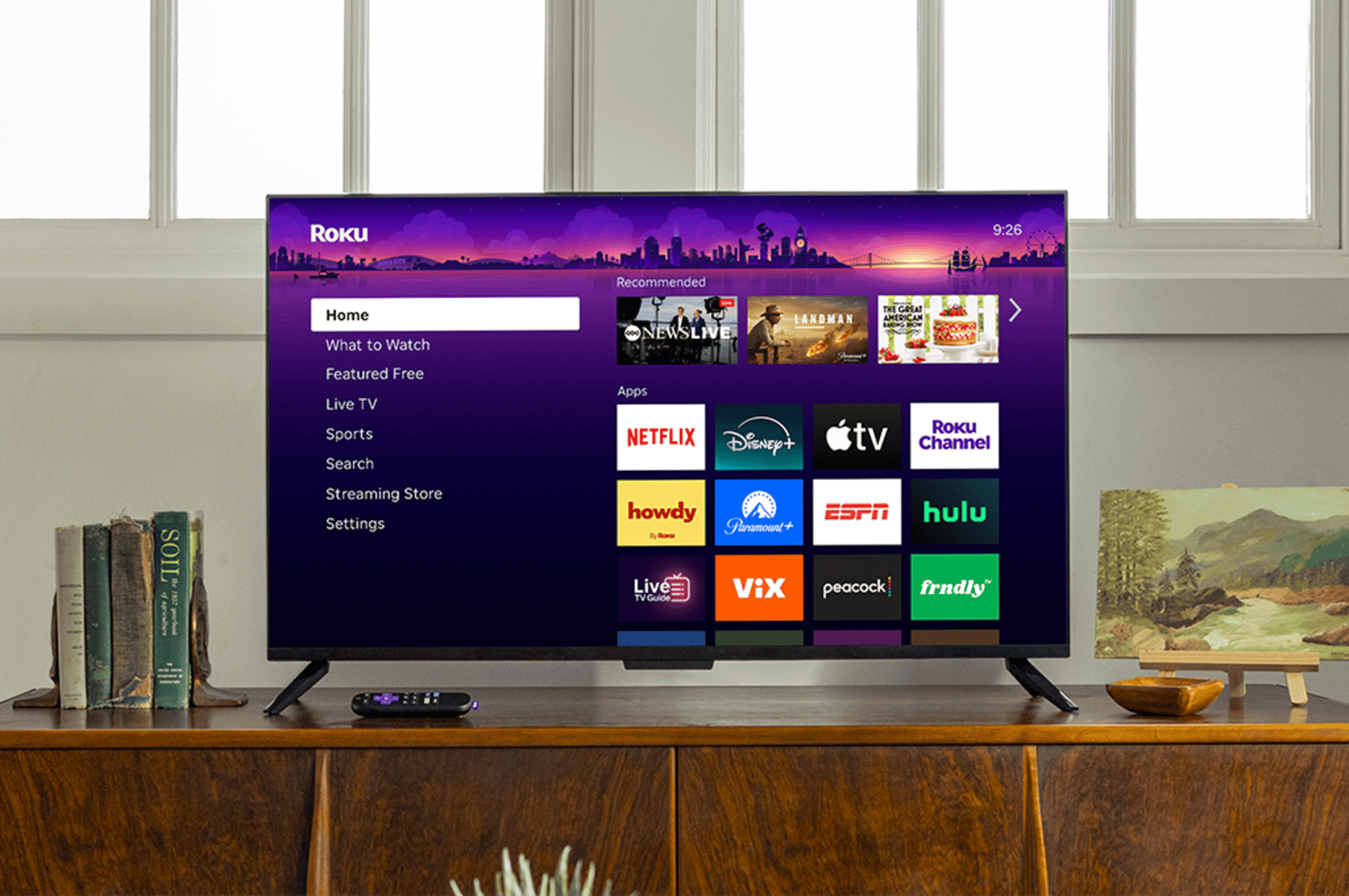Munich’s tradition attracts millions of people. But alcohol-fueled parties are also often the scene of sexual assaults. Actions to create safe spaces and encourage respectful behavior seek to change this. The Oktoberfest annually draws crowds of revelers dressed in dirndls or lederhosen to the city of Munich in the German state of Bavaria. However, the beer festival, or “Wiesn” as the Bavarians call it, can also be the scene of incidents of sexual harassment or abuse.
In the past, many of these cases were simply ignored or silenced, often out of shame. Since the #MeToo debate, however, tolerance for harassment has decreased.
The “Safe Oktoberfest” or “Sichere Wiesn” campaign, supported by the Munich City Health Office, offers assistance to female visitors in cases of harassment. This year the campaign has already provided assistance to 143 women and girls who felt unsafe during the first week of the festival, including seven suspected cases of the “goodnight, Cinderella” scam (putting drugs into someone’s drink without consent) .
These women sought help in the so-called Sichere Wiesn Safe Space, located on the Oktoberfest grounds, behind the Schottenhamel beer tent. It is open every day during the week.
Since 2003, Espaço Seguro has offered help, guidance and support to girls and women who suffer violence, sexual harassment or who feel unsafe in general. There, people can charge their phones, report sexual assault to the police, receive taxi vouchers to go home, among other services. Last year, during the 17 days of the Oktoberfest, the team served a total of 450 women.
Atmosphere of sexualization and revelry
“Actually the atmosphere is very sexualised. A lot of people come here to flirt, to get to know someone, and as long as there is consent, that’s fine,” says Kristina Gottlöber, spokeswoman for Sichere Wiesn.
However, Gottlöber also notes that excessive alcohol consumption at the Oktoberfest fosters a climate of disinhibition.
“People think that Oktoberfest is some kind of morality-free zone where you can go completely off the rails,” says Gottlöber. “We are also often told that women “just have to put up with it.” [a violência sexual], otherwise you shouldn’t come here’. So that’s also kind of the mentality that some people still have. And obviously that’s not right.”
In 2022, the Oktoberfest was the site of 55 cases of sexual harassment, including three rapes. These numbers represent only officially reported cases, as many incidents go unreported.
Accidents
Gottlöber points out that the most common forms of assault include groping, forced kissing and upskirting (taking photos or videos under women’s clothing without consent).
He highlights the importance of planning to ensure a safe Oktoberfest experience and suggests that people consider practical measures, such as carrying a portable cell phone battery, keeping some cash in your pocket outside your wallet, and carrying information of contact.
“Of course, we are absolutely of the opinion that the perpetrator is always to blame. But we also know that dangerous situations for girls and women can arise very quickly in Wiesn,” says Gottlöber.
Oktoberfest veterans often recommend wearing shorts under the Dirndl as a preventative measure. Some women offer other suggestions. “I think as a woman you shouldn’t drink too much. You should pay attention to how you drink and the people around you. You should stick to groups with your friends,” says Denise, 25, living in Munich.
He also suggests asking security guards or waitresses at beer stands for help, as well as avoiding interacting with drunk and disorderly men as much as possible.
Teresa Rodgers, 40, a US citizen from Colorado, recommends visiting the Oktoberfest in the morning, when the atmosphere is quieter and the crowds are less rowdy.
Shared responsibility
Another important campaign against sexual violence at the Oktoberfest is the “WiesnGentleman” initiative, carried out by the non-profit organization Condrobs. This campaign attempts to promote respectful behavior, responsible consumption of alcoholic beverages and the creation of a safer environment, especially for women.
Launched in 2013 with the motto “Respect is my strength”, the campaign spreads its message through social media, posters, school campaigns and by approaching partygoers who travel to the festival site. An integral part of its efforts involves the Wiesn Courage Award, formerly known as the WiesnGentleman Award, which aims to recognize and encourage respectful conduct.
The awards process involves inviting people to share stories of incidents where they or people they know have helped create a safer environment, for example by helping someone in need. A jury carefully evaluates the nominations and selects a winner, who receives a voucher to purchase an Oktoberfest outfit.
While it may seem unconventional to reward behavior that should be considered standard, Condrobs’ Birgit Treml highlights the sad reality that respectful conduct is not always the norm. Furthermore, it is not uncommon for some participants to refrain from helping people in difficulty. Hence the need to actively promote and reinforce respectful behaviors that help others.
“Be respectful of each other,” Treml says. “This applies always and everywhere in our society, but especially here in Wiesn, where so many people gather, where there is a lot of alcohol, where perhaps it is easier to lose one’s boundaries. It is precisely in this context that it is important to maintain boundaries and let everyone help together to maintain them.”
Source: Terra
Rose James is a Gossipify movie and series reviewer known for her in-depth analysis and unique perspective on the latest releases. With a background in film studies, she provides engaging and informative reviews, and keeps readers up to date with industry trends and emerging talents.






